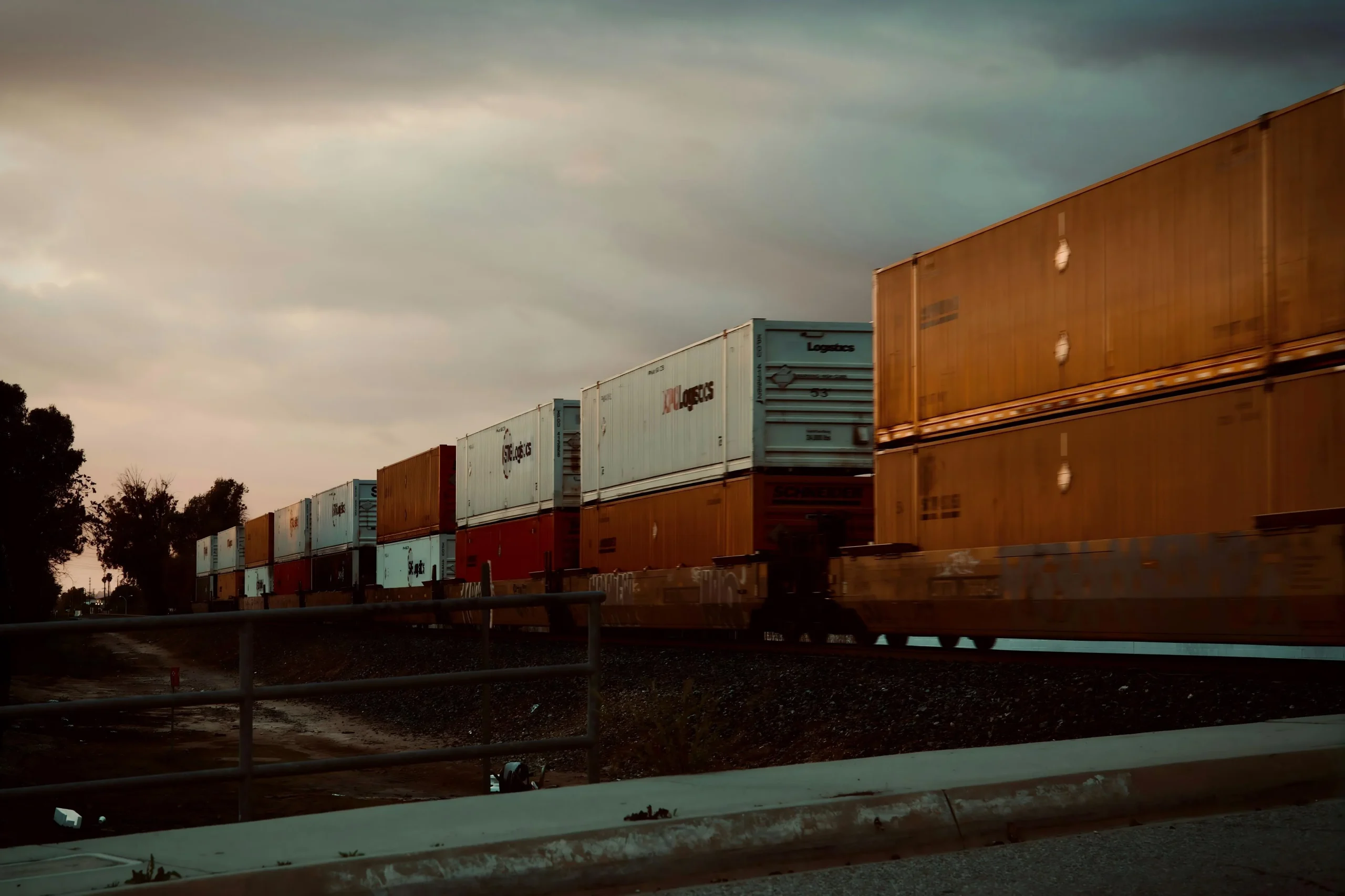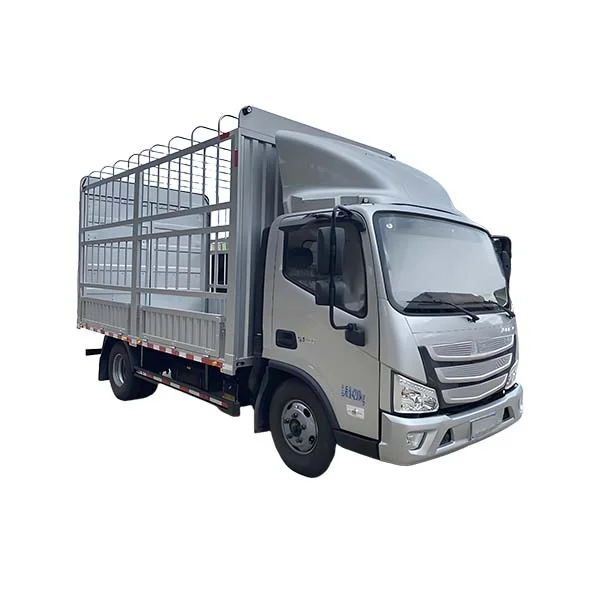The trucking world in 2025 is moving fast. It needs lighter, stronger, and earth-friendly materials for truck cargo boxes. These help trucks haul more stuff and use less fuel. They also fight off rust and damage. New insulation, like vacuum-insulated panels (VIPs) and better foams, keeps cold goods safe. Plus, green materials cut down on trash and harm. Companies like Tairui shine with tough composites and coatings. These save cash on fixes and make trucks safer. Down the road, smart materials will change everything.
What Changes Are Pushing New Needs in the Trucking Industry?
Trucking is changing a lot. Shipping around the world is growing. You probably see that deliveries need to be quick. Saving fuel is super important now. And rules to keep the planet clean are tougher. All this makes truck cargo box designs smarter and better.
Why Are Light, Strong, and Green Materials So Important?
Truck cargo boxes do more than hold stuff. They help trucks work better. Light boxes let you carry more without breaking weight rules. This saves gas. Tough materials last a long time, so you don’t spend much on repairs. Also, being green is a big deal now. Using materials that can be recycled helps the earth and meets new rules.
Which New Materials Are Shaping Truck Cargo Boxes?
To match these needs, companies use cool new materials. These mix strength, lightness, and care for the planet. For example, the global automotive composites market was worth $9.8 billion in 2023 and is expected to hit $14.7 billion by 2033, growing at 4.2% each year. Glass fiber-reinforced plastics (GFRP) made up over four-fifths of this market in 2023 because they help make trucks lighter and save fuel.
How Do Composites Make Truck Cargo Boxes Stronger?
Composites are tough but not heavy. They beat old metals in lots of ways.
High-Strength Fiber-Reinforced Plastics (FRP)
Fiber-reinforced plastics (FRP) are a huge win for truck bodies. They’re light and don’t rust or get banged up easily. For example, Corrugated Truck Box designs use FRP layers. These keep the box strong but not heavy. In fact, the GFRP market was worth $5.6 billion in 2024 and is set to grow to $11.65 billion by 2037, with a 5.8% yearly growth rate, as automakers use it to cut truck weight and save fuel.
Thermoplastic Composites in Panels
Thermoplastics bend easily and can be recycled. They’re awesome for parts that snap together or come apart fast. In setups like the Plug-in Truck Box, they stay sturdy and are easy to work with.
Can Aluminum Alloys Handle Tough Conditions?
Aluminum alloys are liked because they don’t rust and are light.
Staying Strong in Rough Places
Whether you’re near salty beaches or icy roads, aluminum holds up great. It doesn’t rust much. This is perfect for things like the Cargo Fence Stake Truck Box, which stays outside a lot.
Boosting Load Size and Fuel Savings
Aluminum weighs way less than steel. Using it for panels lets your truck carry more stuff without going over the weight limits. This means less gas is used, which saves money over time.
How Does High-Performance Steel Keep Things Affordable?
Composites and aluminum are cool, but high-performance steel is still useful.
Mixing Strength, Weight, and Price
Advanced high-strength steels (AHSS) are super tough and don’t cost too much. They’re heavier than composites but cheaper. They’re great for parts that need to be strong.
Uses in Support Structures
You’ll find AHSS in important spots like cross-members or brackets. In designs like the Refrigerator Truck Box, they hold up insulation and keep the frame solid.
How Is Heat Control Getting Better for Shipping?
Keeping goods at the right temperature is key, especially for things like food or medicine.
Why Does Temperature Control Matter So Much?
Cold chain shipping is getting bigger everywhere. Truck cargo boxes need to keep temperatures steady to follow rules and keep goods safe. Even tiny temperature changes can mess up products or cause legal problems.
What New Insulation Materials Are Used Now?
New tech for insulation keeps boxes cool without needing thick walls. This gives you more space for cargo.
Vacuum Insulated Panels (VIPs)
VIPs stop heat well with thin layers. They’re great for fixing up old boxes without making them bigger or heavier.
Polyurethane Foam Improvements
New polyurethane foams block heat better than older ones. They’re also safer against fire. These foams make tight seals to stop heat leaks, which is great for long trips in a Refrigerator Truck Box with a standard length of 4200 mm.
How Can Your Trucks Be Greener with Material Choices?
Being kind to the planet isn’t just good—it helps you stay ahead and follow rules.
Why Do Green Material Sources Matter?
Using recycled or renewable materials hurts the Earth less. For example, bio-based resins in composites or recycled aluminum cut down on pollution from making new stuff.
Are Recyclable Parts Common in Cargo Box Designs?
Lots of truck cargo boxes now have parts you can take apart and recycle. This means less trash when trucks are done being used.
How Do Materials Cut Down Carbon Emissions?
Every bit of weight you take off a truck saves gas. Less gas means less CO₂ pollution. So, choosing lighter, stronger materials helps the planet and makes trucks run better.
How Does Tairui Help Make Truck Cargo Boxes Better?
Tairui is a big name in truck cargo box solutions. They create strong composites just for transportation. Their products meet today’s needs without skimping on safety or efficiency. Tairui’s team works with truck fleet owners to make custom panels and coatings. These fit performance and green goals, making Tairui a go-to partner for 2025 upgrades or new trucks.
What Makes Tairui’s Composite Panels Special?
Tairui’s panels are light and tough. They’re built for truck parts like walls, roofs, floors, and doors. These panels handle damage well and make trucks lighter, so you can carry more stuff.
How Do Tairui’s Coatings Stop Rust?
Tairui’s unique coatings keep rust away, even in wet or harsh places. This helps truck cargo boxes last longer, no matter the weather.
What Benefits Do Fleet Owners Get from These New Ideas?
New materials aren’t just cool—they save money, make trucks more reliable, and help them last longer. These are things fleet managers care about.
How Much Can You Save on Repairs?
Using rust-proof parts or tough composites, like Tairui’s, means fewer fixes. This is huge for designs like the Cargo Fence Stake Truck Box, which deals with rain, snow, and hard use every day.
Does Less Weight Save Fuel?
Yes, it does. Lighter trucks use less diesel per mile. Tests prove lightweight panels beat heavy steel ones for fuel savings. Over thousands of miles, that adds up big time.
Do New Materials Make Trucks Safer?
For sure. Stronger materials handle crashes better. They stay solid when things get rough, like during quick stops. This keeps drivers safer and gives them more confidence on the road.
Looking Ahead: What’s Next for Smart Materials After 2025?
The future isn’t just about lighter boxes—it’s about smarter ones. Soon, truck cargo boxes will use tech to adjust to their surroundings.
Can Materials Change on Their Own Based on Weather?
Imagine panels that shift how they handle heat depending on the weather outside. Or ones that get tougher during a crash. These ideas, using special plastics, are being worked on now.
Will Sensors Be Built Into Cargo Boxes for Live Updates?
Yes, and it’s coming fast. Sensors in box walls will check things like humidity, bumps, or break-ins. They’ll send info to fleet dashboards using internet links already being tested.
Do These Materials Work with Electric and Self-Driving Trucks?
They need to. Designers are making materials for electric and self-driving trucks. These include shapes that reduce wind drag, spots for batteries, and places for sensors.
FAQ
Q1: What’s the toughest material used in truck cargo boxes today?
A: Fiber-reinforced plastics (FRP) are super strong. They don’t rust and are lighter than metals like steel or aluminum.
Q2: How do composite panels affect how much a truck can carry?
A: Composites are way lighter than metal sheets. This lets trucks haul more stuff without breaking weight rules, making trips more efficient.
Q3: Can these new materials be used on older trucks?
A: Yup! Materials like thermoplastic composites and vacuum-insulated panels fit into older designs, like plug-in systems, without big changes.


